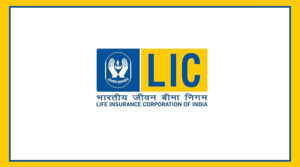As the new financial year begins on April 1, 2025, several important changes have been introduced that will directly impact your finances and daily life. From price reductions to new rules, here are the key updates:
Gas Cylinder Prices Reduced
The price of commercial gas cylinders has decreased in several cities across India. For instance, the price in Delhi has been reduced by Rs 41, bringing it to Rs 1762.
In other cities like Mumbai, Chennai, and Kolkata, similar reductions have been made. However, there has been no change in the price of domestic gas cylinders.
Income Tax Exemption for Earnings Up to Rs 12 Lakh
The new financial year brings a tax relief for individuals earning up to Rs 12 lakh.
As per the budget, income up to Rs 12 lakh 75 thousand will be tax-free, along with a standard deduction of Rs 75,000.
This change is a significant boost for salaried and middle-class individuals.
Changes in the Unified Pension Scheme (UPS)
From April 1, 2025, the Unified Pension Scheme (UPS) will replace the old pension scheme.
This new pension system will affect approximately 23 lakh central government employees, offering a more updated and efficient structure for retirement benefits.
Changes in Credit Card Rules
Several banks, including the State Bank of India, Axis Bank, and IDFC, have revised their credit card policies. This includes changes in reward points, fees, and offers.
Customers may notice a reduction in cashback and rewards available under the new guidelines.
Cheaper Jet Fuel
Air travel costs are expected to decrease as oil companies have reduced the prices of jet fuel. The price of Aviation Turbine Fuel (ATF) has dropped in cities like Delhi
and Mumbai, making air travel more affordable. However, prices in Chennai and Kolkata remain above Rs 90,000 per kiloliter.
Bank Minimum Balance Requirements Increased
Government banks such as SBI, Canara Bank, and PNB have increased the minimum balance requirement for bank accounts.
These changes are based on the type of area (urban, semi-urban, or rural). Customers who fail to maintain the required balance will face penalties.
Vehicle Prices Set to Rise
From April 1, vehicle prices have increased across various brands like BMW, Maruti Suzuki, Tata Motors, and Kia.
Even Mahindra & Mahindra has raised prices, making cars more expensive for consumers.
New UPI Rules for Enhanced Security
To ensure safer digital transactions, the National Payments Corporation of India has implemented new UPI rules.
These rules focus on securing UPI-linked accounts and will gradually remove inactive mobile numbers linked to payment apps like Google Pay and PhonePe.
Higher Toll Charges
The National Highway Authority of India (NHAI) has increased toll charges across national highways.
This change means drivers will now pay more when using toll booths, which could affect travel costs.
Physical Stamp Papers Banned in Uttar Pradesh
As part of efforts to promote digital transactions, physical stamp papers with values between Rs 10,000 and Rs 25,000 have been banned in Uttar Pradesh.
E-stamping will now be used for such transactions, increasing convenience and transparency.
Changes in GST Rules
The Goods and Services Tax (GST) system has also undergone modifications. E-way bills will now be required for transactions involving Aadhaar documents that are no older than 180 days.
Additionally, multi-factor authentication will be introduced on the GST portal for enhanced security.
Updates in DigiLocker
DigiLocker has made it easier for investors to manage their financial documents. Investors can now store their demat account
and consolidated account statements in DigiLocker, helping to avoid the risk of losing important papers.
Changes in Home Loan Rules
Home loan regulations have also been updated. The Reserve Bank of India has introduced new priority sector lending guidelines, which replace the previous rules from 2020, affecting borrowers seeking home loans.
Mutual Fund Rule Changes
SEBI has introduced new rules for mutual funds. Under the new guidelines, funds raised through new fund offers (NFOs) must be invested within 30 business days.
This aims to streamline the process and enhance transparency for investors.
FASTag Becomes Mandatory in Maharashtra
In Maharashtra, FASTag has now been made compulsory for all vehicles. Those without a FASTag will be charged double the toll fee.
This initiative is part of efforts to promote digital payments and streamline toll collection systems across the country.
These changes mark a new beginning for the financial year and will influence various aspects of your finances.
Keep an eye on these updates to ensure you’re well-prepared for the adjustments.

























